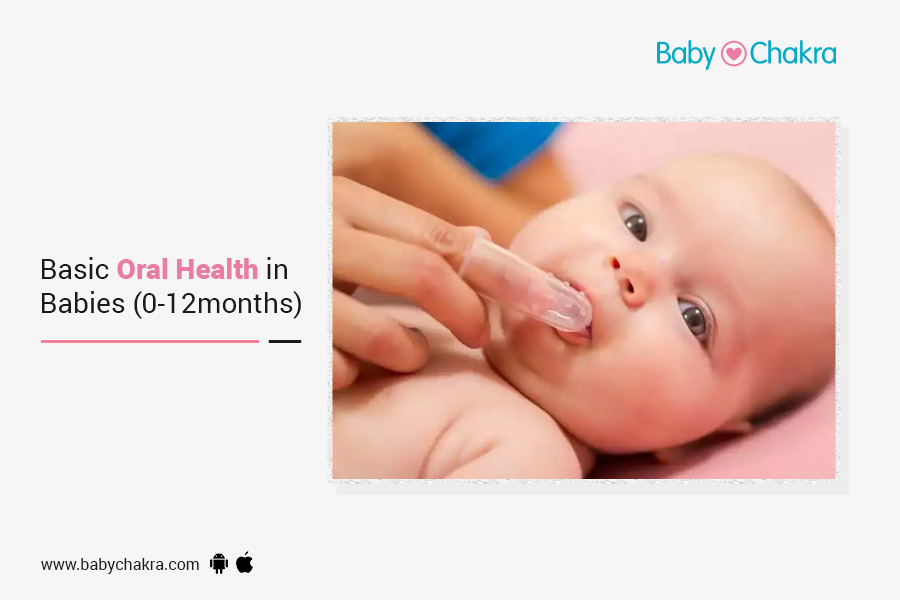
Basic Oral Health In Babies (0-12months)
21 Sep 2022 | 2 min Read
Sweta Dhatwalia Bajaj
Author | 4 Articles
When it comes to oral or dental health, most people are in the misconception that maintaining dental and oral hygiene starts once the teeth have erupted. But that’s not the case.
The process of maintaining good oral hygiene starts right from birth. Practicing good oral hygiene right from birth is a great way to prevent tooth decay and other oral/dental problems.
For babies in whom the teeth haven’t erupted as yet the focus should be on keeping the gums and the tongue clean. For doing so use a soft cloth (muslin), dip it in water to moisten it, roll around your index finger, and gently clean the entire mouth by rubbing or gently massaging the areas. Also, avoid allowing your baby to fall asleep with a milk bottle.
Once your baby starts teething around 6months of age i.e., when teeth start erupting from the gums, be more cautious with any food particle getting stuck in the gaps as it can increase the chance of cavities. Continue cleaning your baby’s mouth the same way using a soft cloth. Gentle massage on the baby’s gum will help soothe the pain and discomfort caused by teething.
You can also give a frozen teether or spoon to your baby to soother the teething pain. In addition to this basic hygiene, once your baby starts with weaning foods or figure foods avoid excess sweetened foods.
Also, a dental appointment is super important once your baby starts teething to take the appropriate advice on when can you start brushing your baby’s teeth.
Follow these basic tips for good oral/dental hygiene and most importantly avoid kissing your baby’s lips to avoid germs from transferring to your baby and leading to oral/dental problems.
A


Related Topics for you
Suggestions offered by doctors on BabyChakra are of advisory nature i.e., for educational and informational purposes only. Content posted on, created for, or compiled by BabyChakra is not intended or designed to replace your doctor's independent judgment about any symptom, condition, or the appropriateness or risks of a procedure or treatment for a given person.
